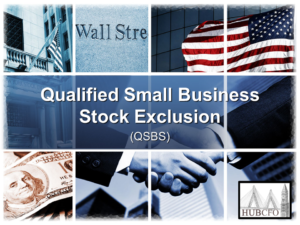Gates Not Opposed to Wealth Tax Despite Implications

There has been much chatter lately regarding a wealth tax. At least two of the leading democratic presidential candidates have discussed it, even though most wealthy Americans would likely oppose this tax. After all, why should they be punished just because they make more money?
But not all wealthy taxpayers oppose a wealth tax. In fact, one of the richest men in the world says he would be okay with it, despite the personal implications it would have on his net worth.
Bill Gates, who is reportedly the second richest man in the world, says he supports higher taxes for the wealthy. Gates says he doubts the country will implement a wealth tax, but if it did, he would be in favor of it.
So how would that affect Gates? Elizabeth Warren wants to implement a 2 percent annual tax on people earning more than $50 million. The tax would be 3 percent above a billion.
According to Forbes, Gates was worth $97 billion in 2018. If Warren’s proposed tax had been in place since the first year Forbes started tracking the 400 wealthiest Americans (1982), Gates would only be worth about $36 billion today.
Still, Gates says he believes the government should make people as wealthy as him pay higher taxes.
If you have a complicated tax issue, we suggest you contact an expert tax advisor. If you’re in the market for one, please consider contacting us here at Info@GROCO.com. Unfortunately, we no longer give advice to other tax professionals.
We hope you found this article about Gates Not Opposed to Wealth Tax Despite Implications helpful. If you have questions or need expert tax or family office advice that’s refreshingly objective (we never sell investments), please contact us or visit our Family office page or our website at www.GROCO.com. Unfortunately, we no longer give advice to other tax professionals gratis.
To receive our free newsletter, contact us here.
Subscribe to our YouTube Channel for more updates.
Considerately yours,
GROCO, GROCO Tax, GROCO Technology, GROCO Advisory Services, GROCO Consulting Services, GROCO Relationship Services, GROCO Consulting/Advisory Services, GROCO Family Office Wealth, and GROCO Family Office Services.

Alan L. Olsen, CPA, Wikipedia Bio

Sec1045 Partnerships
Sec1045 Partnerships This document contains final regulations relating to the application of section 1045 of the Internal Revenue Code (Code) to partnerships and their partners. These regulations provide rules regarding the deferral of gain on a partnership’s sale of qualified small business stock (QSB stock) and a partner’s sale of QSB stock distributed by a…
Sec179 Businessequipment
Updated: 11/12/10 Most new business equipment can be either depreciated over its useful life or expensed immediately under Internal Revenue Code Section 179. The maximum deduction is based on the following schedule for the date in which the tax year begins. Each 1040, whether Single or Joint, is limited to one maximum. 179 expenses passed…
Sec1244 Small Business Stock Sales
Sec1244 Small Business Stock Sales Section 1244 of the Internal Revenue Code, the small business stock provision, was enacted to allow shareholders of domestic small business corporations to deduct as ordinary losses, losses sustained when they dispose of their small business stock. In order to receive this beneficial treatment, the Code prescribes specific requirements for:…
Section 1202: Small Business Stock Gain Exclusion
What is Section 1202 Stock? In December 2015, the Protecting Americans from Tax Hikes Act of 2015 (“PATH Act”) was passed by Congress and signed into law by President Barack Obama. The PATH Act made several tax breaks permanent, including the Small Business Stock Gains Exclusion (Section 1202). The new law makes permanent the exclusion…



